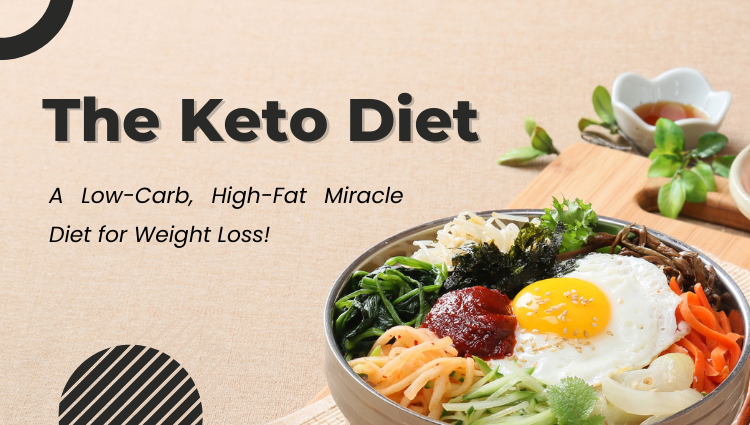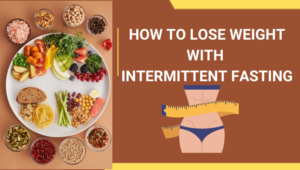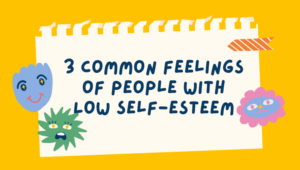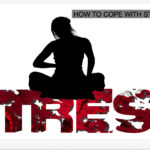Looking to lose weight? The keto diet may be for you!
This low-carb, high-fat diet has been shown to lead to weight loss, and may even have other health benefits.
If you’re considering trying the keto diet, it’s important to understand how it works and what the potential benefits and risks are. This blog post will provide you with everything you need to know about the keto diet, including how it can help you lose weight, the possible side effects, and what to eat.

What Is The Keto Diet?
The keto diet was originally developed in the 1920s as a treatment for epilepsy. It’s still used today as a treatment for some forms of epilepsy, but it’s become increasingly popular as a weight loss and health improvement strategy.
Unlike other low-carb diets, the keto diet does not restrict calories, and instead relies on a process called ketosis to burn fat.
It is similar to the Atkins diet and other low-carb diets, but there are some important differences. Most importantly, it requires a strict ratio of fat to carbs, typically 75% fat, 20% protein, and 5% carbs. This ratio is different from other low-carb diets, which typically recommend a ratio of 60% fat, 30% protein, and 10% carbs.
Another difference is that it allows for a higher intake of protein and fat, while restricting carbs. This allows the body to enter a state called ketosis, where it burns fat for energy, rather than carbs.
How Does The Keto Diet Work?
When you eat a high-fat, low-carbohydrate diet, your body enters a state of ketosis. In ketosis, your body burns fat for energy instead of glucose. This process is thought to lead to weight loss and other health benefits.
It is thought to work by reducing the amount of carbohydrates that you eat. Carbohydrates are broken down into glucose, which is then used for energy. When you reduce the amount of carbohydrates that you eat, your body is forced to burn fat for energy. This process is thought to lead to weight loss.
In addition to weight loss, it is also thought to have other health benefits. Some research suggests that it may help to improve cholesterol levels and blood sugar control. There is also some evidence to suggest that the diet may help to protect against cancer.
What Are The Potential Benefits Of The Keto Diet?
When you think of the keto diet, the first thing that probably comes to mind is weight loss. And while that’s certainly a benefit of the keto diet, it’s far from the only one. In fact, it has a host of potential benefits that range from improved mental clarity to reduced inflammation.
Weight Loss
As we mentioned, weight loss is one of the most common reasons people try the keto diet. And for good reason! It can be extremely effective for weight loss. One study found that people who followed a keto diet lost more weight and body fat than those who followed a low-fat diet.
Improved Mental Clarity
When you’re in ketosis, your body produces ketones, which are a type of fuel that the brain can use for energy. This can lead to improved mental clarity and focus. In fact, one study found that it can improve mental clarity and cognitive function in people with Alzheimer’s disease.
Reduced Inflammation
Inflammation is a major contributor to many chronic diseases, such as heart disease, arthritis, and cancer. It can help reduce inflammation throughout the body. One study found that it can reduce markers of inflammation in people with arthritis.
Improved Heart Health
It can also improve heart health. One study found that it can lower triglycerides, LDL cholesterol, and blood sugar levels. All of these are risk factors for heart disease.
What Are The Potential Risks Of The Keto Diet?
One of the most well-known potential risks of the keto diet is the “keto flu.” This term is used to describe the symptoms that some people experience when they first start the diet, which can include fatigue, headaches, and nausea. These symptoms typically resolve within a few days or weeks.
Another potential risk of the keto diet is that it may lead to nutritional deficiencies. This is because the diet restricts certain food groups, including fruits, vegetables, and whole grains. These food groups are important sources of vitamins, minerals, and fiber.
Lastly, the keto diet may also increase the risk of certain health conditions, such as heart disease, type 2 diabetes, and some types of cancer.
10 Tips For Successfully Following The Keto Diet
Here are 10 tips to help you get started.
1. Start by slowly reducing your carbohydrate intake
If you’re used to eating a diet high in carbs, it can be difficult to make the switch to a low-carb diet. Start by cutting out simple carbs like sugar and white flour, and gradually reduce the amount of complex carbs you’re eating, like starchy vegetables and whole grains.
2. Increase your fat intake
On the keto diet, you want to eat mostly fat, with a moderate amount of protein. You can get your fat from a variety of sources, including avocados, nuts, seeds, and olive oil.
3. Get enough electrolytes
When you’re cutting carbs, your body will excrete more water than usual, and you’ll need to replace that water with electrolytes. Sodium, potassium, and magnesium are all important electrolytes, and you can get them from foods like bone broth, dark leafy greens, and coconut water.
4. Be patient
It can take a few weeks for your body to adjust to the keto diet. During this time, you may experience some side effects like fatigue, headaches, and muscle cramps. These side effects are typically temporary and will go away as your body adjusts to the diet.
5. Drink plenty of water
It’s important to stay hydrated on the keto diet, so make sure to drink plenty of water throughout the day.
6. Avoid processed foods
Processed foods are high in carbs and can kick you out of ketosis. Stick to whole, unprocessed foods as much as possible.
7. Get plenty of sleep
Sleep is important for overall health, and it’s especially important on the keto diet. Make sure to get 7-8 hours of sleep every night.
8. Avoid stress
Stress can raise your cortisol levels and kick you out of ketosis. Try to take some time for yourself each day to relax and de-stress.
9. Supplement your diet
There are a few key supplements that can help you succeed on the keto diet, including MCT oil, exogenous ketones, and bone broth protein.
10. Stick with it
The keto diet can be challenging, but it’s worth it. Remember to be patient and consistent, and you’ll see the results you’re looking for.
Conclusion
The keto diet has pros and cons.
It may be effective for weight loss and improving cholesterol and blood sugar levels. However, it may also cause some side effects in the beginning, and there are some potential risks of following it long term.
If you’re thinking about trying the keto diet, talk to your doctor first to make sure it’s safe for you.






